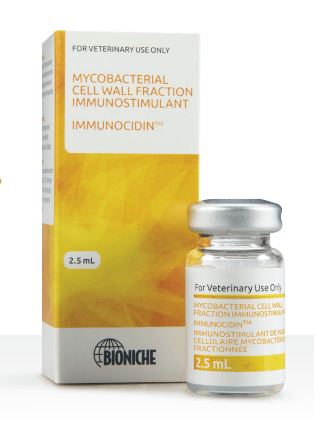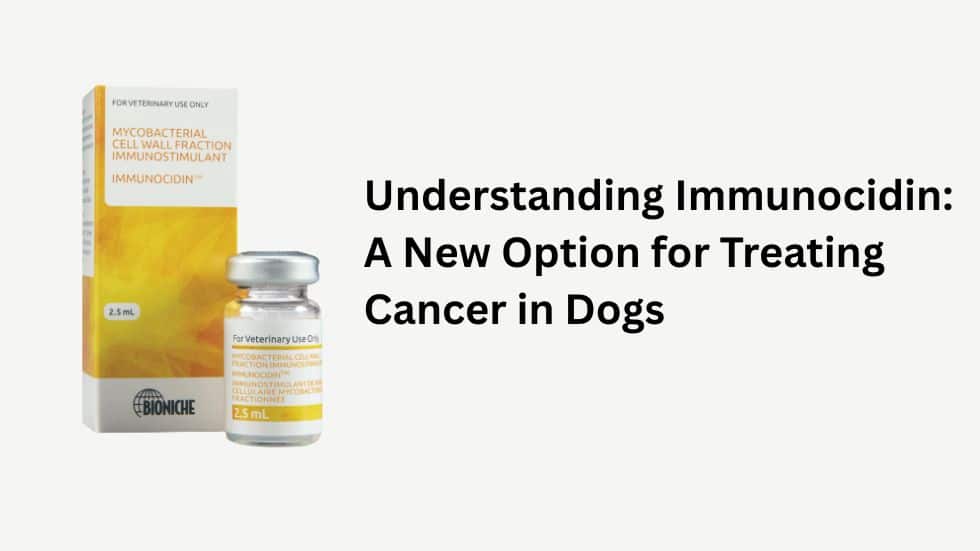How Immunocidin Works
Immunocidin works in two important ways:
- Indirect Action: It activates key parts of the immune system—like macrophages and lymphocytes—to release special proteins (called cytokines) that help fight tumors.
- Direct Action: It encourages cancer cells to self-destruct through a natural process called apoptosis.
This therapy has shown encouraging results in early studies, especially for certain types of breast tumors in dogs (mixed mammary tumors and mammary adenocarcinomas). Ongoing research is exploring its use for other types of cancers and as a supportive or palliative option for dogs that may not be candidates for surgery.

How Immunocidin Is Given
Immunocidin can be administered in several ways:
- Directly into the tumor (intratumoral)
- Into the bladder (intravesical)
- Intravenously (IV)
- Orally
Treatment is typically repeated every 1 to 3 weeks, and most dogs will need 3 to 4 treatments. If there’s no improvement after four sessions, the tumor may be considered unresponsive (refractory), and treatment would be reassessed. This treatment is generally very well-tolerated—even by older dogs or those who can’t undergo surgery.
Side Effects
Most side effects are mild and short-lived, similar to a normal immune response:
- Low-grade fever
- Tiredness
- Decreased appetite
- These symptoms usually last only a day or two and are signs that the immune system is responding appropriately.
If Immunocidin is injected directly into a tumor, temporary swelling or discomfort at the site may occur. Sometimes the site may drain or show signs of inflammation, and pain relief may be needed. As tumors respond to treatment, some tissue breakdown (necrosis) can happen as part of the healing process.
Steroids can be used if necessary, especially in cases of fever or inflammation, but they’re generally avoided unless needed because they can reduce the immune response—something Immunocidin relies on to be effective.
A Note on Use
While Immunocidin is approved for certain tumor types, its use for other cancers is considered “extra-label,” meaning it’s used in ways not specifically listed on the product label. This is a common and legal practice under veterinary supervision and is allowed under the Animal Medicinal Drug Use Clarification Act (AMDUCA).
Tailored for Each Patient
Every dog is different, and treatment plans may change based on how your pet responds. Your veterinarian will monitor your dog’s progress and adjust the protocol as needed to ensure the best possible outcome.

